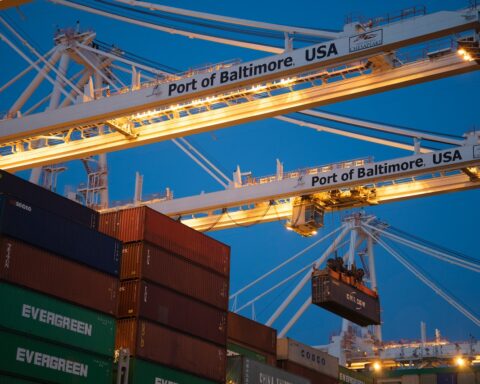With less than two weeks to go until the end of the transition period, the UK is on the brink of no deal. Prime Minister Boris Johnson has even threatened to deploy Royal Navy warships to patrol British waters if no deal comes to fruition. EU sources reportedly claimed last night that Downing Street has watered down a key demand over post-Brexit fishing rights as part of a broader compromise.
Mr Johnson is said to have dropped a push for fishing vessels operating under the UK flag to be majority British-owned in the future.
This comes after several weeks of standstill over the issue of fisheries, with the UK Government determined to take back control of British waters, but EU leaders gunning for continued unfettered access.
Mr Johnson would prefer a Norway-style deal whereby the UK is considered an independent coastal state and access is negotiated on a year-by-year basis.
For some species like farmed salmon, Brexit may increase competition between the UK and Norway, and the UK’s EU access advantage could disappear potentially leading to increased tensions between fishermen from the two countries.
It has now been revealed in documents unearthed at the National Archives by Express.co.uk that alleged offences by UK fishing vessels have sparked fears of a war with Norway in the past.
In 1974, several British trawlers were accused of damaging equipment belonging to Norwegian boats by steering their vessels through their nets, despite reportedly being informed of their positions.
One Norwegian skipper claimed to lose 60,000 kroner worth of gear due to foreign trawlers (£4,766 or £50,000 in today’s money), plus more in lost catch.
Other skippers claimed similar damage from British trawlers, and claimed they had some difficulty getting compensation.
This was intensified by the presence of the Royal Navy fisheries protection vessel HMS Mohawk accompanying British boats in Norwegian waters.
There was an outcry in the Norwegian press and clamour for the Norwegian Navy to protect their own trawlers.
However, the Fishing Inspector in Troms, Bjern Berj, warned that this could spark a “war at sea”, although he did condemn the alleged British actions.
Mr Berg told Norwegian newspaper Dagbladet: “This cannot go on. Something has to be done.
“On the other hand, I do not have very much belief that it will lead to anything positive that Norway starts using navy ships to protect Norwegian fishermen ‒ this will only entail ‘war’ at sea, and none of the parties will benefit from that.
“Nor do I believe in the early enlargement of the fishing limit.
“We shall have to await the big ocean conference and see what happens there.”
The newspaper also claimed that Norwegian nets were being “ravaged” by British trawlers.
Mr Berg added: “I am shocked that foreigners behave like pirates.”
He called on the Norwegian government to launch an official protest to the UK Government about these alleged incidents.
Secretary of the Troms Fishermen’s Federation, Adolf Peterso, added that he thought the presence of HMS Mohawk was an “idiotic” move because it risked escalating the dispute.
He said: “A harder struggle seems generally to be developing in this field, and in this total picture I consider it idiotic that a British naval ship arrives on the scene.
“We are now running the risk of the aggravation that everyone wishes to avoid.
“I sincerely hope that frigates will not be a usual feature on the fishing grounds off our coast.”
In the end, Norway did not launch an official protest, but urged the British government to avoid such incidents in the future.
Authorities in the UK and Norway also agreed to establish better lines of communication.
The UK will have to be careful next year that fishing disputes will not escalate to the point where war fears are once again triggered, especially with the presence of Royal Navy boats.






